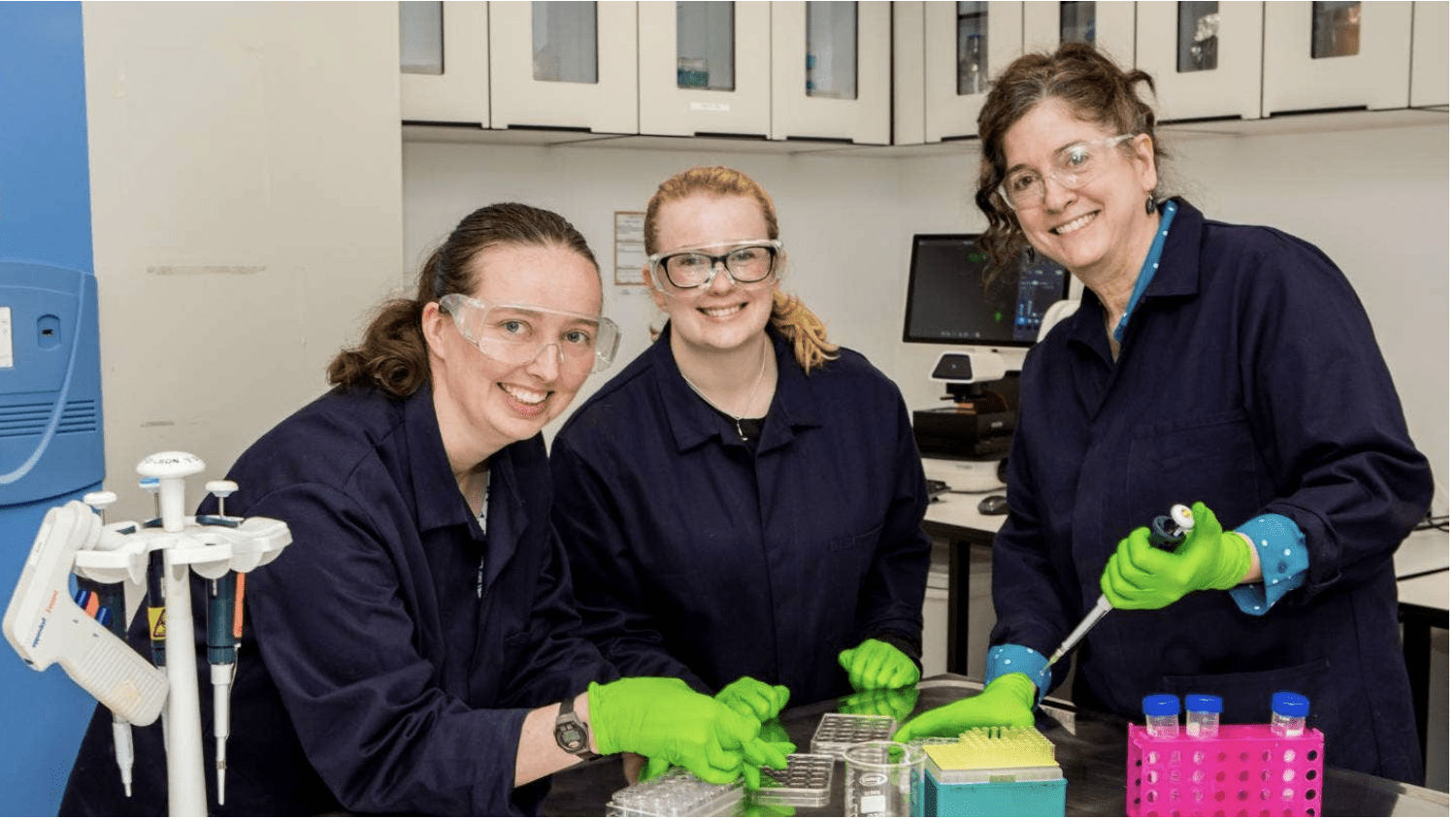Originally published on The Press, November 7th 2023
A Christchurch researcher hopes to help millions of endometriosis sufferers worldwide after discovering a similarity to the way certain cancers work.
Dr Rachael Wood, from Te Whare Wānanga o Waitaha University of Canterbury (UC), is using lessons learned from cancer research and applying them to endometriosis, where tissue similar to the lining of the uterus grows outside the uterus.
Her project will investigate the invasive mechanics of endometriosis, an incurable disease that can cause debilitating pain, fatigue and nausea, as well as reduced fertility.
While it affects 10% of New Zealand women, it remains poorly understood and difficult to diagnose and treat.
Wood and her team from UC’s department of chemical and process engineering, have found that endometriosis has similar invasive properties to hormone-driven cancers.
The engineering lecturer has been awarded the Marsden Fund Fast-Start grant and will receive $360,000 over three years, during which she hopes to determine how endometriosis tissue modifies its environment to aid invasion by looking at lessons learned from cancer.
“We know that endometriosis is invading other cells and going places it shouldn’t be going, but we don’t really understand why [it is] able to do this. We do know how cancer cells can do it.

Some women have to wait years to be diagnosed with endometriosis.
STUFF
“By observing how healthy and diseased cells interact with different tissue models, we hope to better understand the onset and progression of endometriosis, and how this compares to cancer,” Wood said.
Wood and her research team will measure the mechanical properties of healthy endometrial and diseased endometriosis tissues and use these measurements to build 3D mechanical models that can be used for experimental work.
The project will help uncover how the mechanical properties of tissue, such as stiffness, are affected by the invasion of endometriotic cells.
“One of the key things we have found is that hormone-driven cancers change their environment, so they make tissue around them stiffer. So what that does is let the cancer cells get through easier, and we’re pretty sure – well, we hope to find – that endometriosis is doing the same thing.
“We are testing the tissue around endometriosis from patient samples and testing if it is making it stiffer. If it is, we already have medications and treatment plans that can interrupt that progression…so at least you can halt that invasion.
“If you can halt that invasion it is immediately a lot easier to deal with,” Wood said.

A diagnosis of the disease can only be confirmed with surgery, and symptoms include things like chronic pelvic pain, menstrual pain, infertility, cramping and diarrhoea.
123RF.COM
The idea is trying to take what is known about cancer and hormones and apply it to endometriosis to see whether they can “hijack” treatment plans that are already available.
“Ultimately, this knowledge may help to identify new diagnostic and treatment strategies for endometriosis, potentially bringing relief to millions worldwide.”
Wood has worked with patients and heard about their experiences, making her determined to help them.
“Once you hear these people’s stories you can’t let it go. You just really want to do whatever it is you can to make any little movement forward that you can.”
– The Press, Kristie Boland



